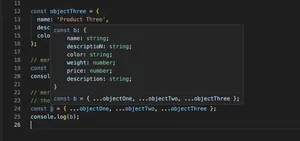Table of Contents
- Introduction
- Understanding Literal Types
- String Literal Types
- Numeric Literal Types
- Boolean Literal Types
- Type Aliases and Literal Types
- Literal Type Inference
- Literal Types for Control Flow Analysis
- Combining Literal Types with Non-Literal Types
- Enums vs Literal Types
- Advanced Patterns With Literal Types
- Conclusion
Introduction
Exploring TypeScript’s literal types allows developers to define more precise and restricted values in their code, bolstering type safety and reducing bugs.
Understanding Literal Types
Literal types in TypeScript, as the name suggests, refer to the use of ‘literals’ which are exact, fixed values as types. These can be strings, numbers, or booleans reflecting specific and unchangeable values. Instead of allowing any value from a broader type, a literal type restricts a variable to be exactly one particular value.
let exactValue: 'specificString';
exactValue = 'specificString'; // correct
exactValue = 'anotherString'; // Type error
This kind of type precision is beneficial when you want to ensure that certain values are expressively and unmistakenly aligned within your codebase.
String Literal Types
String literals are common in modeling functions or methods that expect a particular string argument.
function handleEvent(event: 'click' | 'mouseover'): void {
// ...
}
handleEvent('click'); // valid
handleEvent('drag'); // throws an error
This approach ensures that only the strings ‘click’ or ‘mouseover’ are accepted as arguments, leading to safer and more predictable code.
Numeric Literal Types
Similarly to string literals, numeric literal types restrict a variable to a specific number.
function setAudioVolume(volume: 0 | 50 | 100): void {
// ...
}
setAudioVolume(50); // correct
setAudioVolume(75); // Argument of type '75' is not assignable to parameter of type '0 | 50 | 100'.
Boolean Literal Types
Although less common, boolean literal types can be useful when dealing with a toggled state that should not change.
let isTrue: true = true;
isTrue = false; // Type error
Type Aliases and Literal Types
Type aliases can combine with literal types for even cleaner and DRY-er (Don’t Repeat Yourself) code.
type MouseEvent = 'click' | 'mouseover';
function handleEvent(event: MouseEvent): void {
// ...
}
In this example, the ‘MouseEvent’ alias can be used in place of the literal union type, simplifying the function signature and promoting code reuse.
Literal Type Inference
When you initialize a variable with a literal value, TypeScript infers the narrowest type possible. However, you might want more flexibility whilst maintaining type safety.
let flexibleEvent: 'click' | 'mouseover' = 'click';
flexibleEvent = 'mouseover'; // valid
Literal Types for Control Flow Analysis
Literal types shine in control flow scenarios within functions, using type guards to narrow down types after specific checks.
function processEvent(event: string) {
if (event === 'click' || event === 'mouseover') {
// At this point, event is of type 'click' | 'mouseover'
}
}
This pattern significantly enhances the code’s correctness by using the literal types to guide the function’s logic.
Combining Literal Types with Non-Literal Types
Literal types can coalesce with non-literal types to form powerful and complex type definitions.
type HybridType = 'constant' | string;
let hybridValue: HybridType;
hybridValue = 'constant'; // valid
hybridValue = 'variable'; // also valid
Enums vs Literal Types
Enums in TypeScript can be seen as a collection of literals. They can sometimes be interchanged with literal types, though they are not identical in their capabilities or restrictions. Literal types, being more flexible, might replace enums in many cases.
enum ClickEvent { Click = 'click' }
// Literal alternative
type ClickEvent = 'click';
Advanced Patterns With Literal Types
Advanced use of literals includes discriminated unions, type assertions, mapped types, and more, enabling a depth of type precision aligned with complex domain requirements.
// Using discriminant union for exhaustive checks
type Shape = { kind: 'circle', radius: number } | { kind: 'square', size: number };
function assertNever(x: never): void { throw new Error('Unexpected object: ' + x); }
function getArea(shape: Shape) {
switch (shape.kind) {
case 'circle': return Math.PI * shape.radius ** 2;
case 'square': return shape.size ** 2;
default: return assertNever(shape); // Type error if a case is missing
}
}
Conclusion
In conclusion, TypeScript’s literal types offer a robust way to improve type safety and ensure distinct values in variable assignments and function parameters. Mastering literal types can lead to a more maintainable and error-resilient codebase, fortifying your applications against run-time surprises.
